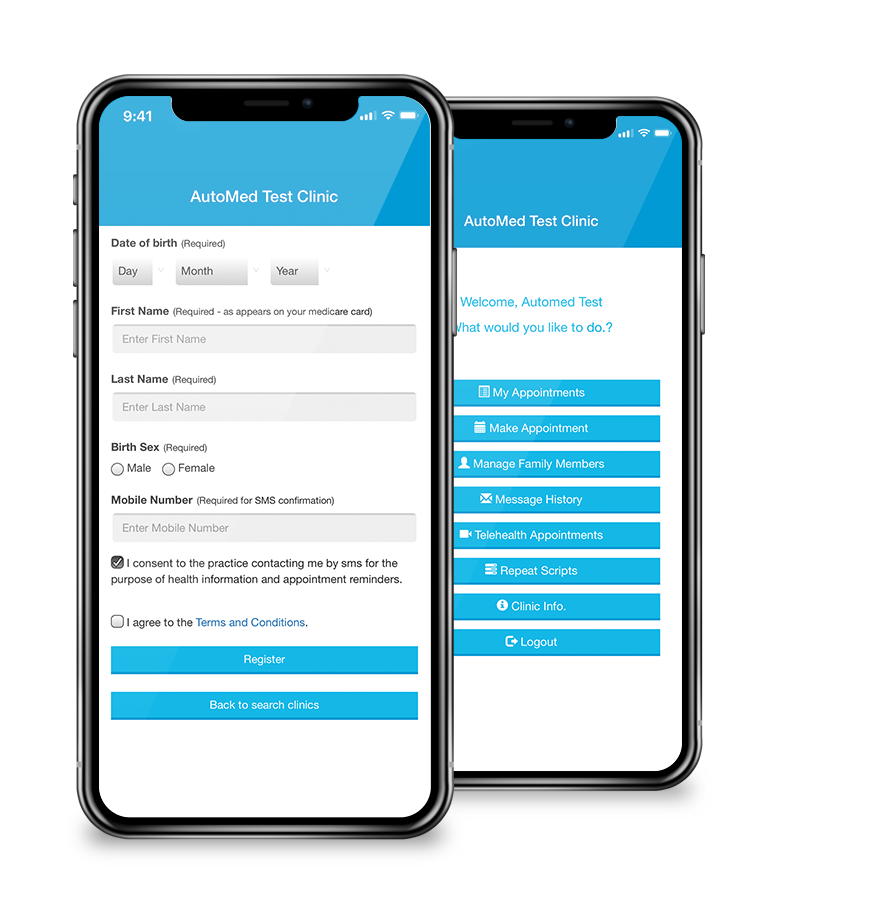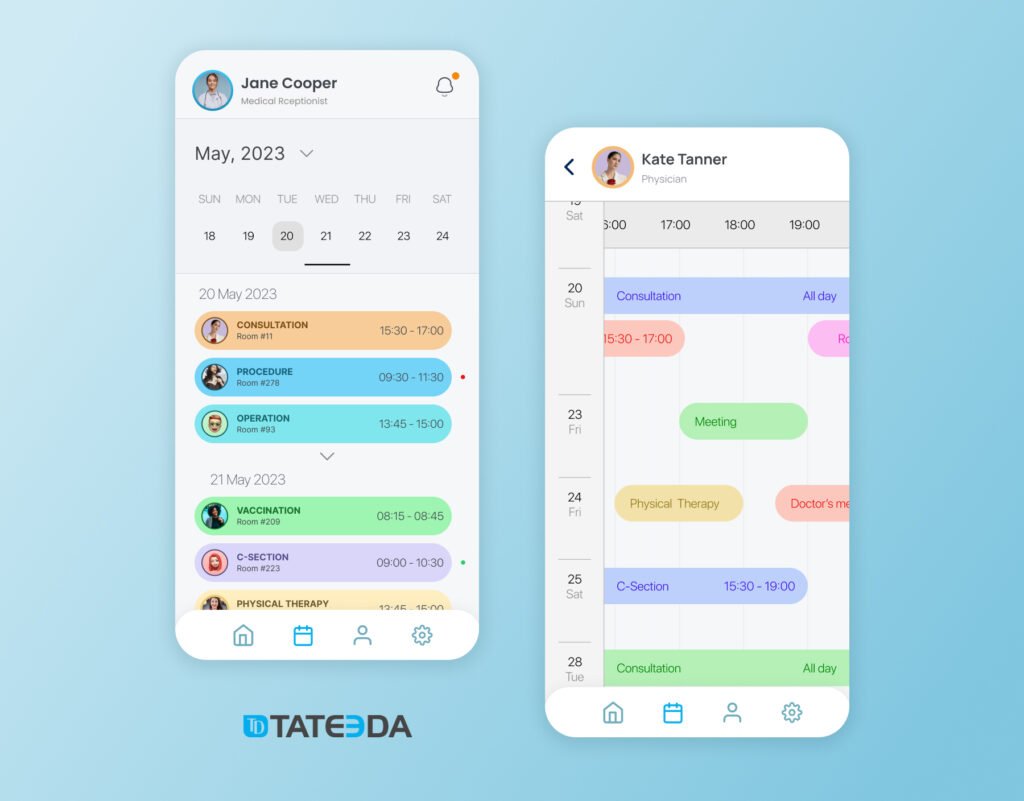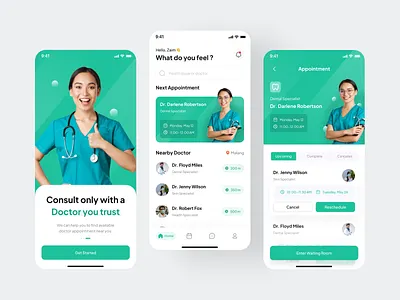The Future of Medical Care: Why Clinics Need a Mobile Application Today
As the healthcare landscape continues to develop, centers deal with installing stress to adapt to patient expectations for greater benefit and accessibility. The combination of mobile applications can act as a vital method for improving client involvement and improving operations. By leveraging modern technology to enhance interaction and give vital solutions, clinics not just resolve current demands however additionally position themselves for future success. The effects of this change expand past mere operational efficiency; they might redefine person relationships and care shipment in profound methods. What might this makeover look like for both facilities and patients?
Transforming Person Assumptions
As the landscape of healthcare develops, individual expectations are undergoing a considerable change. Today's clients are progressively seeking benefit, ease of access, and personalized care. With the rise of modern technology, specifically mobile applications, people now expect a seamless assimilation of medical care solutions right into their day-to-day lives. They desire the capability to take care of visits, gain access to medical records, and interact with medical care carriers via their mobile phones, reflecting a change towards an extra positive method to health monitoring.
Additionally, clients are ending up being extra educated and empowered, typically looking into conditions and therapies on the internet before consultations. This increased understanding is paired with a need for transparency in healthcare procedures, including cost price quotes and therapy alternatives. Because of this, companies are forced to adjust by taking on electronic devices that boost the patient experience.
The expectation for reliable and timely communication has never been higher, with many clients thinking about responsiveness an essential component of quality care. mobile app for clinics. In this evolving landscape, healthcare organizations must recognize these changing expectations and leverage mobile applications to cultivate a much more patient-centric technique, making certain that they not just fulfill yet surpass the criteria established by today's educated consumers
Enhancing Patient Engagement

Mobile applications facilitate communication in between clients and doctor, allowing real-time consultation scheduling, pointers for medicine adherence, and direct messaging functions. These functionalities not only improve ease but additionally build a sense of responsibility amongst people. Mobile applications can offer academic web content customized to private needs, helping patients better understand their conditions and treatment options.
The assimilation of gamification components within healthcare applications can additionally encourage people to take part in healthy and balanced behaviors, reinforcing positive way of living adjustments. By tracking progression and fulfilling success, people are extra most likely to remain devoted to their health and wellness goals. Ultimately, boosting patient engagement via mobile applications brings about boosted health end results, higher individual complete satisfaction, and a more collaborative medical care experience. Centers that prioritize this element will likely see a significant effect on the high quality of care supplied.
Simplifying Center Procedures
Improving facility operations is crucial for improving operations efficiency and maximizing client care. The implementation of mobile applications can dramatically decrease management worries, enabling doctor to concentrate much more on client interactions. By automating visit organizing, patient check-ins, and invoicing procedures, clinics can reduce wait times and enhance total functional efficiency.
Mobile apps likewise promote real-time accessibility to client records, making it possible for medical care professionals to make informed decisions swiftly. This immediacy not just boosts the quality of care however likewise lowers the chance of mistakes associated with misplaced or outdated info. Moreover, leveraging mobile modern technology sustains an extra well organized approach to managing patient follow-ups and treatment strategies, ensuring that discover here no vital actions are overlooked.
Furthermore, mobile apps can enhance stock administration by supplying centers with tools to monitor supplies and drugs effectively. This permits timely replenishment and aids avoid interruptions in person treatment because of stock scarcities. By incorporating these performances into their day-to-day operations, clinics can develop a much more effective and cohesive setting, eventually resulting in improved person results and fulfillment. Embracing mobile innovation is not just a fad; it is important source a needed development in the healthcare landscape.
Improving Communication Networks
Effective interaction is regularly mentioned as a keystone of quality medical care delivery. In today's hectic clinical setting, mobile applications can considerably boost communication channels in between facilities, patients, and health care service providers. By incorporating mobile applications into their operations, centers can promote real-time communications, guaranteeing that individuals obtain timely information regarding their visits, examination outcomes, and therapy strategies.
Mobile applications also empower patients to communicate directly with their health care groups with safe and secure messaging features. This direct line of communication fosters a sense of interaction and enables for instant clarification of issues, which can result in much better adherence to treatment procedures. Additionally, press alerts can advise people of upcoming consultations or drug timetables, reducing no-show prices and boosting overall wellness results.

Staying Affordable in Healthcare
In a quickly evolving health care landscape, companies must focus on technology and adaptability to preserve an one-upmanship. The combination of mobile applications right into healthcare services is no much longer optional; it is important for centers intending to enhance client interaction, simplify operations, and enhance general solution distribution.
As patients progressively count on electronic platforms for health administration, centers that fall short to adopt mobile technology risk falling behind. A properly designed mobile application can supply attributes such as appointment scheduling, telemedicine assessments, and access to clinical documents, supplying people with ease and fostering loyalty.

Competitors are additionally purchasing mobile remedies, so staying ahead needs continuous improvement and remaining notified concerning technological innovations. Facilities should not just execute mobile applications yet likewise take part in routine updates and improvements. Ultimately, the effective integration of mobile innovation will certainly differentiate forward-thinking medical care companies and set the benchmark for patient-centric care in a digital world.
Verdict
In verdict, the integration of mobile applications in centers is vital to deal with the advancing landscape of client expectations. By improving person engagement, enhancing procedures, and improving interaction networks, clinics can considerably enhance health outcomes. Furthermore, the fostering of mobile technology positions centers to stay affordable in an increasingly digital health care atmosphere. Inevitably, the strategic implementation of mobile apps represents a vital action towards supplying easily accessible and tailored medical care, therefore satisfying the requirements of today's equipped individuals.
Ultimately, enhancing Recommended Reading person involvement with mobile applications leads to improved health end results, better person contentment, and a much more collaborative medical care experience.Mobile applications also facilitate real-time accessibility to client records, making it possible for health care professionals to make enlightened decisions quickly. In today's busy medical atmosphere, mobile applications can significantly boost communication channels in between clinics, individuals, and healthcare providers.Mobile applications also encourage clients to communicate straight with their healthcare teams via safe messaging features. Ultimately, the calculated implementation of mobile applications represents a vital action toward supplying customized and obtainable healthcare, consequently fulfilling the requirements of today's encouraged patients.